- Home
- Roger Zelazny
Changeling (Illustrated) Page 5
Changeling (Illustrated) Read online
Page 5
“That was an electrical shock,” he stated. “I am not foolish enough to give you the same opportunity to harm me twice. Damn it! We’re neighbors, and I want to help you! I want my town to be the center from which the entire country receives the benefits I wish to bring it! I have amazing things to teach you! This is only the beginning! Life is going to be better for everyone! I can build machines that fly and that travel under water! I can build weapons with which we can win any war! I have an army of mechanical servants! I—”
The pelting had become a steady hail, and larger, heavier objects were now falling.
“All right! I’m going!” he cried. “All that I want you to do is to think about the things that I have said! They may seem a lot more reasonable later, when you have cooled off! Go and look at the Branson place! I’ll be back another time, when we can talk!”
The vehicle moved slowly forward. A few people chased after for a time, hurling some final rocks and words. Then they fell behind. He left the village.
As he swung to the left, climbing about the side of a small hill, he saw a slim figure in a blue blouse and gray skirt, standing by the side of the trail, waving to him. He slowed immediately when he recognized Nora.
Coming to a stop, be leaned over and opened the door.
“Get in,” he said.
She studied the car through narrowed eyes, then shook her head slowly.
“No,” she said. “I thought you’d come this way, and I came on ahead to warn you—not to go for a ride in the thing.”
“Warn me?”
“They’re angry—”
“I know that.”
She struck her fist against her palm.
“Don’t interrupt! Listen! Could you hear what they were saying?”
“No. I—”
“I didn’t think so, over all that noise. Well, I could, and I don’t think that they are going to calm down and see things your way. I think that the only reason you’re alive right now is that they couldn’t break into this thing . . . ” Gingerly, she reached out and touched the door. “Don’t go back to the village. You probably ought to leave again—” Her voice broke and she turned away. “You never got in touch,” she managed later. “You said that you would, and you never did.”
“I—I couldn’t, Nora.”
“Where were you?”
“Far away . . . ”
“Far? As far as Anvil Mountain, or one of the other forbidden places? That’s where you got this thing, isn’t it?”
He did not reply.
“Isn’t it?” she repeated.
“It’s not the way you think,” he answered then. “Yes, I was there, but—”
“Go away! I don’t want to know you any more! I’ve warned you. If you value your life, leave here again—and this time, don’t come back!”
“I can convince you you’re wrong—if you’ll listen, if you will let me show you some—”
“I don’t want to listen and I don’t want to see anything!”
She turned and ran off through the trees. He would have pursued her, but he feared leaving the car there, should any villagers be following.
“Come back!” he called.
But there was no answer.
Reluctantly, he closed the door and continued on. A puzzled centaur peered after him from the hilltop.
VII.
The synthetic caterpillars crisscrossed the streets of the reviving city, removing trash and rubble. Their superintendent, a short, wide-shouldered mutant with heavy brow-ridges, followed their slow progress, occasionally leaning upon his hooked driving-prod. The skies were sunny today, above the shining spires about which laborers clambered, building. Terraces were spreading under the care of a company of robot attendants. The steady throbbing of the restored factories filled the air as other-styled robots, flying machines, cars and weapons moved down the computerized assembly lines. Far below, a line of passing mutants genuflected as they passed the white-stone monument above the entranceway to the old teaching machine’s quarters, which their leader had caused to be erected there and had designated as a shrine. Giant bird-like forms departed from and returned to flat-roofed buildings, moving into and out of their enormous patrol patterns. The superintendent uttered a cry, swung his goad and smiled. Life had been growing steadily better, ever since the arrival of the suncrowned one, with his power over the Old Things. He hoped that the leader fared well on his latest quest. Later, he would visit the shrine to pray for this, and that they might spread the blessings of warmth at night and regular meals across the land. A virtuous feeling he could now afford possessed him as he swung the goad again.
* * *
Michael Chain, florid-faced, hair thinning now, sat across from Daniel in the small, quiet restaurant, trying to seem as if he were not studying his reactions. Dan, in turn, uncomfortable in his best suit, poked at his melting dessert and sipped his coffee, trying to seem as if he were not aware of the surreptitious scrutiny. Occasionally, his wrist throbbed and somewhere a dish shattered. Whenever this occurred, he would hastily apply the biofeedback technique he had learned to suppress it.
“The record isn’t doing too well, eh?” Michael said.
Dan raised his eyes, shook his head.
“I seem to go over better in person,” he replied. Then he shrugged. “Hard to tell what you’re doing wrong the first time around, though, I can already see a number of things I should have done differently—”
“It was good,” Michael surprised him by saying. “I liked it.” He flipped a palm upward and gestured vaguely away. “Even so,” he went on. “A small outfit, no promotion . . . Do you have any idea how many songs are recorded each year?”
“Yes, I do. It’s—”
“ . . . And you know something about statistics, even with a liberal arts background. It’s practically a lottery situation.”
“It’s rough,” Dan acknowledged.
The hand turned over and struck the tabletop.
“It’s damn near impossible to make it, that’s what it is.”
A sound of breaking crockery emerged from the kitchen. Dan sighed.
“I suppose you’re right, but I’m not ready to give it up yet.”
The elder Chain called for an after dinner drink. Dan declined one.
“Still seeing that Lewis girl?”
“Yes.”
“She strikes me as kind of cheap.”
“We’ve had some good times together.”
Michael shrugged.
“It’s your life.”
Dan finished his coffee. When he looked up, Michael was staring at him, smiling.
“It is,” the older man said. He reached out and touched Dan’s hand. “I’m glad your mind’s your own. I know I sometimes push hard. But listen. Even without the degree, there’ll always be a place for you in the firm. If you should ever change your mind, you can learn what you need on the job—pick up some night courses . . . No sales pitch. I’m just telling you. There’ll still be a place.”
“Thanks, Dad.”
Michael finished his drink and looked about.
“Waiter!” he called. “The check!”
The chandelier began to quiver, but Dan recognized the feeling and quelled it in time.
* * *
Mor stood, leaning against the bedpost for support. He inserted a knuckle into an eye-socket and rubbed vigorously. It seemed that all he did these days was sleep. And his ankles, swollen again . . .
He raised the water bottle from the bedside table and took a long drink. He coughed, then swallowed a potion he had left ready, washing it down with another gulp of water.
Crossing the chamber, he drew back the long, dark drape and opened a shutter. Stars sparkled in a pale sky. Was it morning or evening? He was not certain.
Stroking his white beard, he stared out across the hushed land, realizing that something other than physiology had troubled his slumber. He waited for the dream, the message, the feeling to recur, but it did not.
&nb
sp; After a long while, he let the drape fall, not bothering to close the shutter. Perhaps if he returned to bed, it might come back to him . . . Yes, that seemed a good idea.
Shaking his head slowly, he retraced his steps across the room. Human bodies are so much trouble, he reflected.
An owl hooted several times. The mice scurried within the walls.
* * *
Deep beneath the ruin of Castle Rondoval, weighted by the heavy spell of sleep that filled the cavern, Moonbird, mightiest of the dragons, assumed a stiff, heraldic pose upon the floor and relaxed it with equal suddenness, his sigh moving like a warm wind across the forms of his mates. His spirit fled ghostly across the skies, passing the forms of giant, dark birds with bodies like sword metal at heights only his kind had once held. Invisible, he threatened, then attacked. The creatures passed along their ways, unaffected.
Raging in his impotence, Moonbird retreated to the dark places of sleep, narrowly missing a smaller form nearby as he tossed, his claws raking furrows along a stony ledge.
VIII.
Mark was not awakened by the distant cries. He slept on long after they had begun and was only aroused when a figure entered his shed, seized hold of his shoulder and shook him violently.
“Wake up! Please! Wake up!” came a sharp whisper.
“What—” he began, and he felt a hand cover his mouth.
“Keep your voice down! It’s me—Nora. They’ll get this one soon enough, just for good measure. You must flee!”
The hand came away from his face. He sat up and reached for his boots, began drawing them on.
“What are you talking about?” he asked. “What is happening?”
“I tried to get here in time to warn you, but they were too fast,” she said. “I remembered you sometimes slept in this shed . . . ”
He seized his swordbelt and buckled it on.
“I’ve weapons in the barn to stop anything,” he said. “I wish I’d kept some here—”
“The barn is burning, too!”
“Too?”
“The house, the small stable and the two nearer sheds are also on fire.”
He sprang to his feet.
“My father was in the house!”
She caught hold of his arm, but he shook her off and made for the door.
“Don’t!” she said. “It’s too late! Save yourself!”
He flung the door wide and saw that she had spoken the truth. The house blazed like a torch. Its roof had already caved in. A number of townfolk were headed in his direction, and a cry went up as they sighted him.
He took a step backward.
“Get out through the rear window,” he whispered, “or they’ll know you were here. Hurry!”
“You come, too!”
“Too late. They’ve spotted me. Go!”
He stepped out, shut the door behind him and drew his blade.
As they approached, faces dirt-streaked and sweaty in the firelight, he thought of his last sight of old Marakas, passed out on his pallet in the loft. Too late, too late . . .
Father, they will pay for this!
He moved forward to meet them. As he advanced, he saw that some of them were armed with other than makeshift weapons. Old blades—some that he might have forged himself—had been freshly oiled and honed. Several of these shone in the midst of the mob. He did not slow his pace.
“Murderers!” he cried. “My father was in there! You all knew him! He never hurt anyone! Damn you! All of you!”
There was no reply, nor did he expect one. He fell upon them, swinging his blade. The nearest man, Hyme the tanner, cried out and dropped to the ground, clutching at his opened belly. Mark swung again, and the butcher’s brother screamed and bled. His next attack was parried by one of the blades, and a staff struck him upon the left shoulder. He beat down a thrust toward his chest and fell back, swinging his blade in a wide arc, severing an extended hand clutching a club.
Ashes fell about them, and a line of fire moved through the long grasses toward the orchard. The barn shuddered and a wall gave way, crashing and spraying sparks off to his left.
He was struck upon the chest by something hard-thrown. He staggered back, still swinging the blade. A staff caught him again, this time upon the thigh, and he stumbled. They were all about him then, kicking, pushing. His blade was wrenched from his grasp. Immediately, his hand moved to the bracelet upon his left wrist. He pressed several of the studs .
A blade was swinging toward his head. He twisted aside, felt it cut into his brow, slip lower . . .
He screamed and covered his face.
And another voice also carried above the cries of his attackers. Beyond the pain, behind the blood, he recognized Nora’s near-hysterical shout: “You’ll kill him! Stop it! Stop it!”
Someone kicked him again, but it was the last blow that he felt.
A frightened scream arose nearby, soon to be echoed by many others, as a dark form dropped from the sky and plunged into the midst of his assailants. Its wings were like twin scythes and its metal beak rose and fell among them.
Mark drew a deep breath and staggered to his feet, his body a network of pain, his left hand still covering that half of his face, blood trickling between the fingers, running down the arm, filming the bracelet toward which his right hand now moved.
A number of men lay still upon the ground, and the dark bird stalked those who stood . . .
His fingers danced across the metal band.
The bird-thing halted, drew back, hopped, beat with its wings, rose into the air, circled . . .
“You have decided your own fates,” Mark cried hoarsely.
The bird descended, seized hold of him by the shoulders, bore him aloft. His left hand was now entirely red and seemed firmly fixed to his face.
“I give those of you who still stand your lives—for now—that memory of this night shall remain among you, that witnesses be available,” he called down to them. “I shall return, and all shall be done as I said it earlier in town—but you will be subjects, not partners in the enterprise. I curse you for this night’s work!”
The bird picked up speed, gained altitude.
“ . . . Save for you, Nora,” he shouted finally. “I will be back for you—never fear!”
He vanished into the sky above. The wounded moaned and the fires crackled. Countercurses followed him across the night. His blood was a small rain over fields he had once worked.
IX.
After knocking and waiting—several times—she had just about given up on his being at home. She had also tried the door and found it to be secured.
She was tired. It had been a long walk up to the place, after an absolutely horrible night. She leaned against the door frame, eyes sparkling, but she simply did not feel like crying. She drew back her foot and kicked the door as hard as she could.
“Open up, damn you!” she cried, and she heard a click and the door swung inward.
Mor stood there, wearing a faded blue robe, blinking at the light.
“I thought I heard someone scratching,” he said. “You seem familiar, but I don’t—”
“Nora. Nora Vail,” she told him, “from the east village. I’m sorry I—”
Mor brightened.
“I remember. But I thought you were just a little girl . . . Of course! Excuse me. It flies.” He stepped back. “Come in. I was just making some tea. Don’t mind the litter.”
She followed him through one curiously furnished room and into another. There, he cleared a chair for her and turned his attention to a boiling pot.
“It’s terrible . . . ” she began.
“It will wait until tea is ready,” he said sternly. “I do not like terrible things on an empty stomach.”
Nodding, she seated herself. She watched the old sorcerer, as he put out bread and preserves, as he brewed the tea. There was a trembling in his hands. His face, always deeply lined, was now unnaturally pallid. He had been correct, though, in that he had not seen her for years—she had
been but a small girl when he had last stopped by for dinner, on his way to or from someplace. She recalled a surprisingly long conversation . . .
“There,” he said, setting a plate and a cup on the table beside her. “Refresh yourself.”
“Thank you.”
Partway through the meal, she began talking. The story poured out in disjointed fashion, but Mor did not interrupt her. When she looked at him, she realized that some color had returned to his cheeks and the hand that held his cup seemed steadier.
“Yes, it is serious,” he agreed when she had finished. “You were right to come to me. In fact—”
He rose and slowly crossed the chamber to stand before a small, dark mirror set within an iron frame.
“—I had best look into it immediately,” he finished, and he passed his fingertips near the glass and muttered softly.
His back was to her and his right shoulder partly blocked her view of the glass, but she saw images dance within the exposed portions, and something like a section of a strange skyline appeared in the upper right quadrant, a vaguely disturbing silhouette circling above it. The entire prospect seemed to rush forward then, and she could not tell what it was that Mor was now regarding. Changes in lighting seemed to indicate several more scene shiftings after that, but she could not distinguish the details of subsequent images.
Finally, Mor moved his hands once again, across the face of it. All action fled, and darkness filled the glass like poured ink.
Mor turned away and moved back to his seat. He raised his teacup, sipped, made a face and dashed its tepid contents into the fire. He rose and prepared fresh tea.
“Yes,” he repeated when he had returned and served them. “It is very serious. Something will have to be done about him . . . ”
“What?” she asked.
He sighed.
“I do not know.”
“But could not you, who banished the demons of Det—”
“Once,” he said, “I could have stopped this changeling easily. Now, though . . . Now the power is no longer in me as it was in the old days. It is—too late for me. Yet, I am responsible in this.”

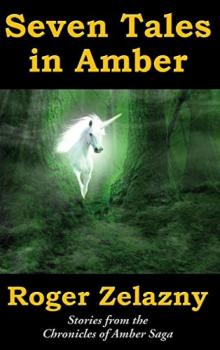 Seven Tales in Amber
Seven Tales in Amber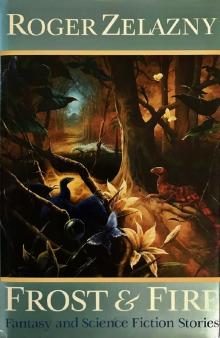 Frost and Fire
Frost and Fire Doorways in the Sand
Doorways in the Sand Unicorn Variation
Unicorn Variation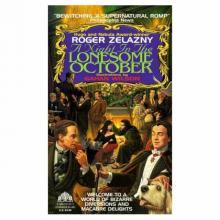 A Night in the Lonesome October
A Night in the Lonesome October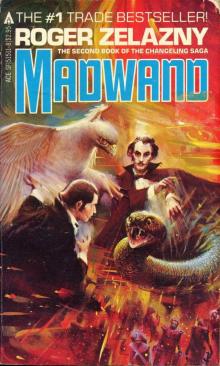 Madwand
Madwand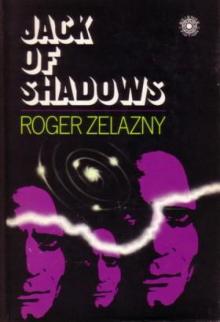 Jack Of Shadows
Jack Of Shadows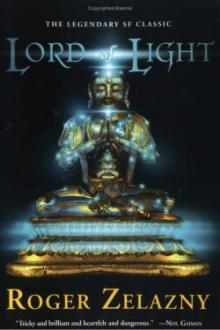 Lord of Light
Lord of Light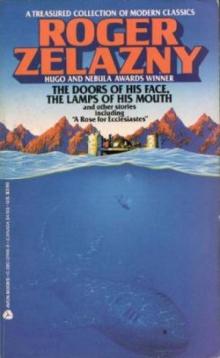 The Doors of His Face, The Lamps of His Mouth and Other Stories
The Doors of His Face, The Lamps of His Mouth and Other Stories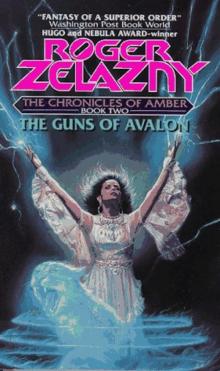 Guns Of Avalon tcoa-2
Guns Of Avalon tcoa-2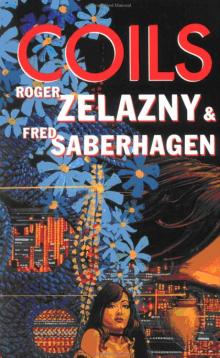 Coils
Coils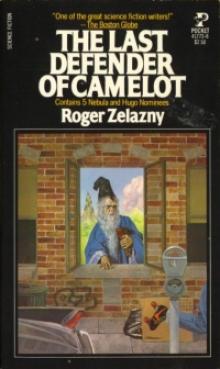 The Last Defender Of Camelot
The Last Defender Of Camelot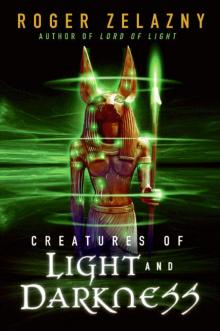 Creatures of Light and Darkness
Creatures of Light and Darkness This Immortal
This Immortal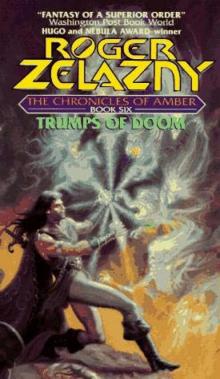 Trumps of doom tcoa-6
Trumps of doom tcoa-6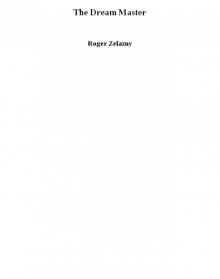 The Dream Master
The Dream Master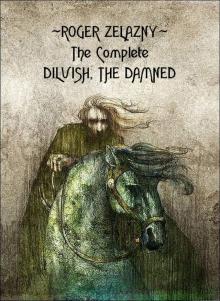 The Complete Dilvish, The Damned
The Complete Dilvish, The Damned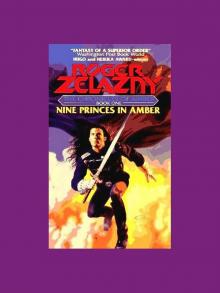 Nine Princes in Amber
Nine Princes in Amber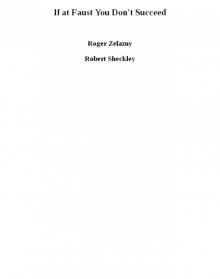 If at Faust You Don't Succeed
If at Faust You Don't Succeed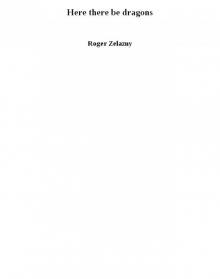 Here there be dragons
Here there be dragons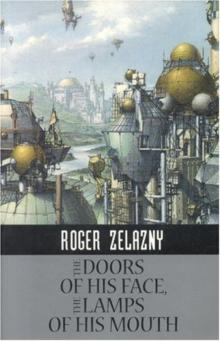 The Doors Of His Face, The Lamps Of His Mouth
The Doors Of His Face, The Lamps Of His Mouth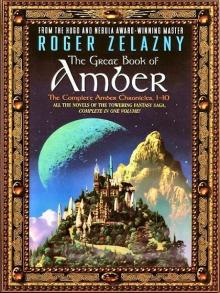 The Great Book of Amber - Chronicles 1-10
The Great Book of Amber - Chronicles 1-10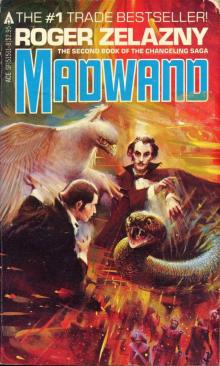 Madwand (Illustrated)
Madwand (Illustrated)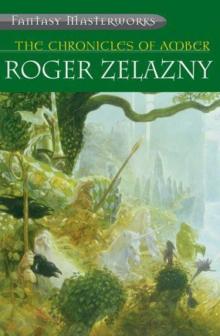 The Chronicles of Amber
The Chronicles of Amber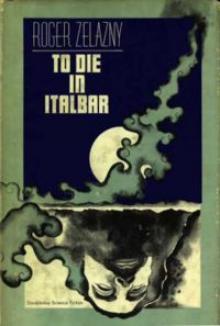 To Die In Italbar
To Die In Italbar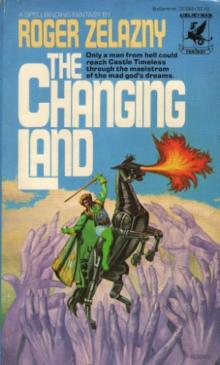 The Changing Land
The Changing Land The Furies
The Furies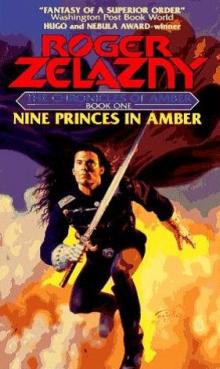 Nine Princes In Amber tcoa-1
Nine Princes In Amber tcoa-1 Last Of The Wild Ones
Last Of The Wild Ones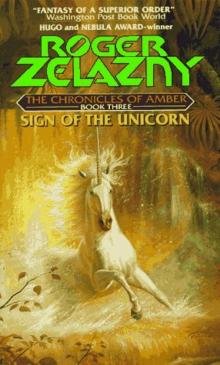 Sign of the Unicorn tcoa-3
Sign of the Unicorn tcoa-3 My Name is Legion
My Name is Legion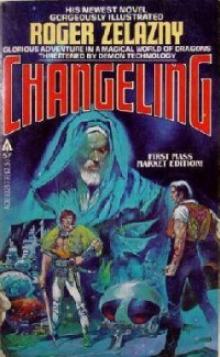 Wizard World 1: Changeling
Wizard World 1: Changeling Changeling
Changeling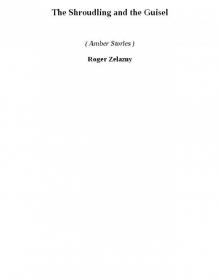 The Shroudling and the Guisel (amber stories)
The Shroudling and the Guisel (amber stories)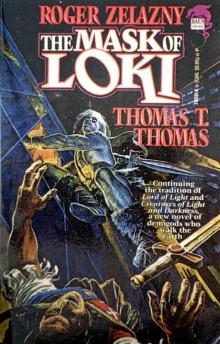 The Mask of Loki
The Mask of Loki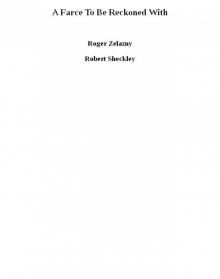 A Farce To Be Reckoned With
A Farce To Be Reckoned With Roadmarks
Roadmarks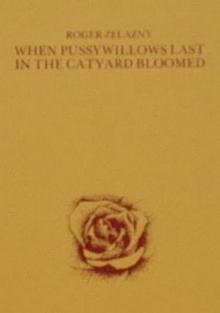 When Pussywillows Last in the Catyard Bloomed (rtf)
When Pussywillows Last in the Catyard Bloomed (rtf)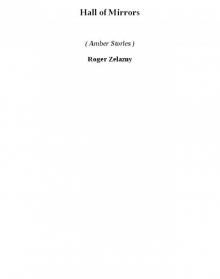 Hall of Mirrors (amber stories)
Hall of Mirrors (amber stories)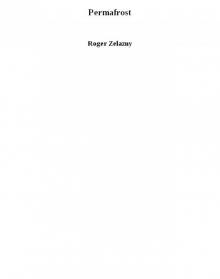 Permafrost
Permafrost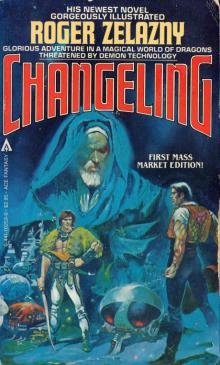 Changeling (Illustrated)
Changeling (Illustrated)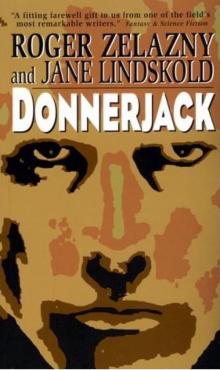 Donnerjack
Donnerjack Shadows & Reflections: A Roger Zelazny Tribute Anthology
Shadows & Reflections: A Roger Zelazny Tribute Anthology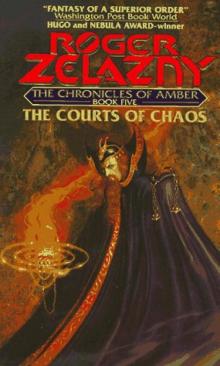 The Courts Of Chaos tcoa-5
The Courts Of Chaos tcoa-5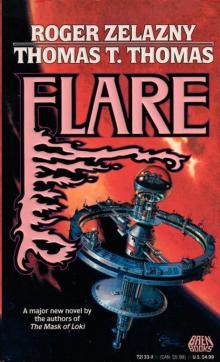 Flare
Flare Doorsways in the Sand
Doorsways in the Sand The Great Book of Amber
The Great Book of Amber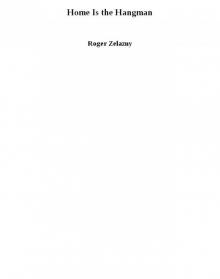 Home Is the Hangman
Home Is the Hangman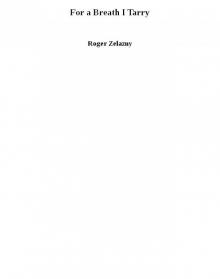 For a Breath I Tarry
For a Breath I Tarry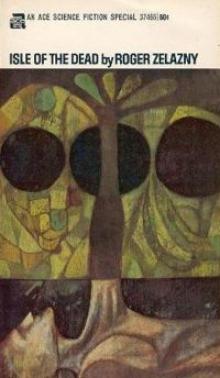 Isle Of The Dead
Isle Of The Dead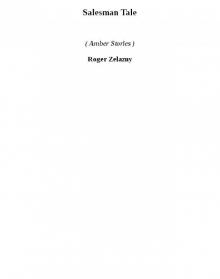 Salesman Tale (amber stories)
Salesman Tale (amber stories) Dismal Light
Dismal Light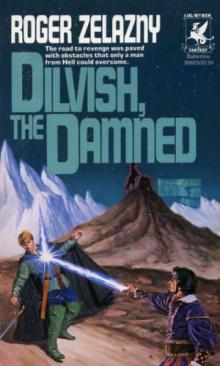 Dilvish, The Damned
Dilvish, The Damned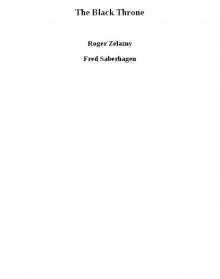 The Black Throne
The Black Throne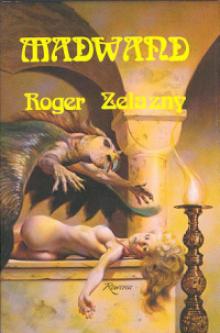 Wizard World 2: Madwand
Wizard World 2: Madwand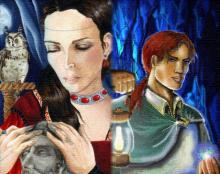 The Salesman's Tale
The Salesman's Tale